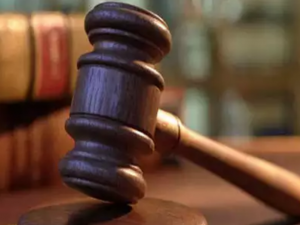Journalists Found Guilty of Influencing Death by Suicide of Lucknow Man
A journalist is not expected to dramatize a sensational and horrifying incident to make news, the Court said.
The Allahabad High Court, while rejecting the bail plea moved by a journalist accused of inducing a person to die by suicide for sensationalism, observed that a journalist isn’t expected to dramatize such a horrifying incident to form news (Shameem Ahmad v. State of Uttar Pradesh). The accused journalists had allegedly convinced the person to die by suicide so that the former can film it.
die by suicide for sensationalism, observed that a journalist isn’t expected to dramatize such a horrifying incident to form news (Shameem Ahmad v. State of Uttar Pradesh). The accused journalists had allegedly convinced the person to die by suicide so that the former can film it.
Justice Vikas Kunvar Srivastav declined to grant bail after hearing that there was enough material to rule out the journalist’s claims that he was innocent.
Taking a dim view of the alleged events, the Court further made pertinent observations on what journalists are expected to do and what lines they can’t cross.
“The journalist keeps an eye on anticipated or unexpected events in society and brings them to the attention of all people through various journalism with no tampering; this is frequently his business. A journalist is not expected to dramatize a sensational and horrifying incident in order to make news by putting his actor in pitiful condition and putting him in danger of death,” the bench said.
Also Read : Cow Owners Suffer Hefty Fines in Lucknow
The Court further noted that if bail was granted to the accused journalists, Shameem Ahmad and Naushad, the deceased man’s wife, who is the complainant in the case, would be in peril.
“The complainant, who is already mentally distressed by her husband’s death by suicide under the influence of the accused and personal financial conditions, would be in jeopardy if the accused is found ‘not guilty’. She is the primary witness in the case and would prefer a completely fear-free environment for a fair trial. She has the right to a fair trial in this matter.”
The Court also noted that the accused journalist had previously been charged in eleven criminal cases, which raise concerns about whether the accused would take advantage of his immunity and bail status.
The Court has dismissed the jail plea moved by journalist, Shameem Ahmad. For his alleged crime, Ahmad has been charged with offences under Sections 306 (abetment of suicide), 511, 109, 506 (punishment for criminal intimidation) and 504 (intentional insult with intent to impress breach of the peace) of the Indian legal code. The First Information Report (FIR) was filed by the wife of the deceased.
Case background
As per the prosecution, journalists Shameem and Naushad Ahmad (co-accused) had contacted the now-deceased Surendra Chakraborty, and induced him to light himself ablaze at the Vidhan Sabha Bhawan, so that they can film and telecast the incident.
Mr Chakraborty and his wife had been residing in Lucknow for 10-12 years as tenants at a house owned by Mr Zaved Khan (also co-accused), who had wanted the couple to vacate the house.
The couple had also filed a suit against Khan alleging that he was harassing them to vacate the house. The Court was told that at one point, Khan came to the house and began abusing Mr Chakraborty and asked him to vacate the house.
When the couple expressed their inability to vacate the house and spoke of their financial troubles, the owner allegedly scolded the family and told Mr Chakraborty to light himself ablaze and die.
Also Read : How Does Jitin Prasada’s Defection Impact the Congress?
Thereafter, the two accused journalists allegedly contacted Mr Chakraborty and influenced him to light himself up outside the legislature so that it could be filmed for telecast. The journalists allegedly told the deceased that if the incident is so highlighted within the media, nobody would forcibly evict him from the house.
Mr Chakraborty died on United Nations Day, 2020 after he immolated himself as planned, despite the efforts of policemen present to save him.
The accused journalists allegedly filmed the incident. Video footage on the incident disclosed that a person, identified to be with the accused journalists, was at the legislature filming the deceased even before he set himself ablaze, the Court noted. It had been also noted that rather than saving the deceased while he was burning, the accused kept filming the incident.
A journalist isn’t expected to dramatize a sensational and horrifying incident and make news by putting his actor in a pitiable condition in peril of death.
The Court concluded that it is clear that the accused had tempted the deceased to die by suicide.
While the accused journalists urged the Court to grant them bail since the co-accused landlord had already been granted bail, the Bench observed that the two co-accused couldn’t be treated on parity.
The landlord, Zaved Khan had only made a passing remark to “go and die”, the Court observed. The deceased died by suicide days later. As such, there’s no overt act on Khan’s part to compel the deceased to die by suicide, the Court opined.
While dismissing the bail plea, the Court has also directed to expeditiously proceed with the trial and conclude it within one year.
